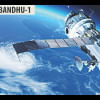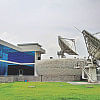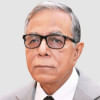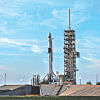‘Bangabandhu-1's commercial success depends on prudent business strategy’
Bangladesh overnight launched successfully its first communication satellite Bangabandhu-1, opening up enormous business opportunities for the country while experts said its commercial success depends on prudent business strategy.
Talking to BSS, several telecommunication and ICT experts said effective collaboration with other satellite companies particularly eyeing the South East Asian countries could push up Bangladesh's flagship venture due to its the geostationary location in the space.
Bangladesh became the 57th member of satellite-owning countries exclusive club by launching Bangabandhu-1 keeping its 20 out of 40 transponders having 1,440 MHz frequency for overseas clients.
BRAC University's Science and Engineering Department Professor Dr M Khalilur Rahman said the authority should put concentration on the market of East Asian Countries such as Indonesia, the Philippines for the position of BS-1.
"Apart from the TV stations, the Direct-to-Home (DTH) television business owners would be potential customers for the BS-I in those countries," said Rahman who was involved with country's first nano-satellite launched earlier.
The BRAC University teacher also observed that the BS-1 should make liaison with other satellite companies to extent its footprint for more business.
"Collaboration with other satellites means our local TV station could bring their viewers living in Middle East under coverage through the BS-1," he said.
Chief Operating Officer (COO) of a Bangladesh telecommunication transmission company Sumon Ahmed Sabir said the country was so far largely unfamiliar with businesses involving its own satellites.
"So, we need people having experience and links to communication satellite marketing," he said adding that the local market alone could not earn it the expected profit.
Sabir, the COO of Fiber@home, said the country need to move to international client segments with "commercially and technically" viable offers while the "Bangabandhu-1 authority must ensure a required level of expertise to offer quality services as well."
He strongly echoed Rahman saying the authority concerned was crucially needed to develop liaison and collaboration with other satellite companies as "practically speaking, BS-1 cannot compete with a big company who has strong footprints in the business".
Located at the 119.1 east geostationary slot, Bangabandhu-1 would cover the entire SAARC countries and Indonesia, the Philippines, Myanmar, Tajikistan, Kyrgyzstan, Uzbekistan, Turkestan and a part of Kazakhstan.
Currently over 30 Satellite TV channels are in operation in Bangladesh using rented satellite services from Singapore and other countries that cost about $14 million annually.
The government, meanwhile, formed Bangladesh Communication Satellite Company Limited (BCSCL) to operate BS-1.
BCSCL Managing Director M Saiful Islam told BSS that they nearly finalised arrangements to hire an international marketing agency to run the businesses for Bangabandhu-1.
He, however, said, that BCSCL mobilised a good and efficient marketing team, adding that "our agency will mainly concentrate on the international business rather engaging in local market".
Asked if the monopoly in providing the satellite services in local market could infuse into BCSCL a sense of indolence barring it from seeking overseas market, Islam sharply answered in the negative.
"No scope is there in BCSCL for such indolence . . . we must do our job efficiently," he said adding that they already started the procedure with a prime target to sell the BS-1 capacity to Indonesia and the Philippines.
The BCSCL chief said they also were eying two other countries as prospective buyers of BS-1 transponders but preferred not to name them immediately.

 For all latest news, follow The Daily Star's Google News channel.
For all latest news, follow The Daily Star's Google News channel. 







Comments